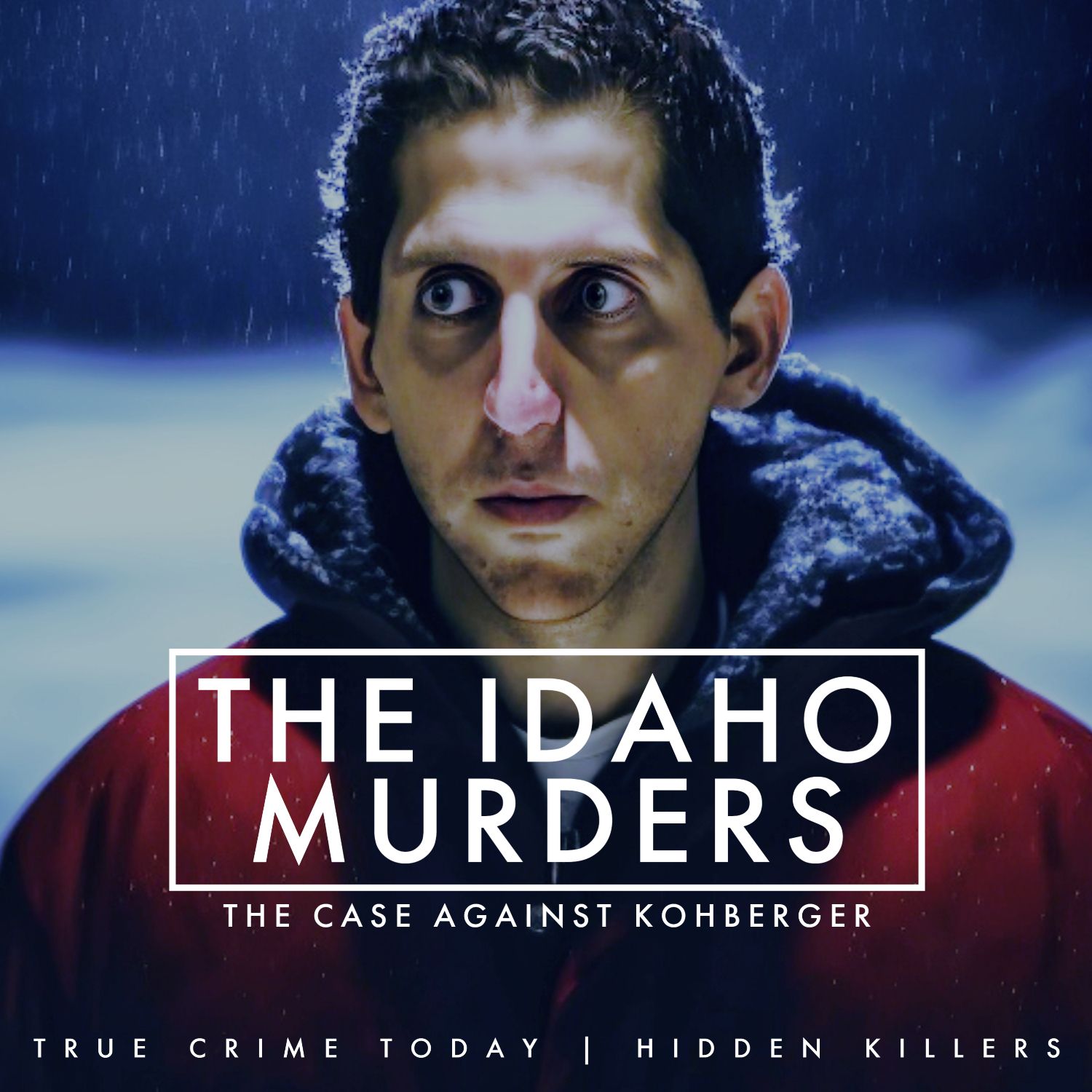Why Does Kohberger Want Cameras Removed from Court?

In a recent episode of the podcast “Hidden Killers” hosted by Tony Brueski, a critical discussion took place with psychotherapist and author Shavaun Scott concerning the vetting and qualification of expert witnesses in trials. A focal point of this conversation was the recent testimony of Gabriela Vargas, a self-taught genetic genealogist who also runs a carpentry business and cares for a pet cockatoo, notable characteristics that paint a rather unconventional picture of an ‘expert witness.’
The discussion was primarily centered around the process by which expert witnesses are vetted and the criteria that ultimately deem them qualified for court testimony. Scott explained, “In the cases I’ve been involved in… expert witnesses have to present their CV and their history… under cross-examination. The opposing side has the right to question and challenge.” The court is then responsible for determining the acceptance of the individual as an expert.
This conversation prompted questions regarding the effectiveness and thoroughness of the system, and whether the bar for qualification is set high enough. Although Scott noted she has never witnessed a judge decline an expert witness, she also observed that challenges to their body of knowledge are quite common. This led her to speculate, “It may be that the bar is not terribly high, and I think that probably depends on the judge.”
The relevance and timeliness of this discussion were underscored by the recent events surrounding Vargas, who was visited by the FBI shortly after her testimony. Although the exact reason for the visit remains unknown, it fueled speculation that there might be underlying issues with the experts being called into the hearing. Brueski and Scott delved into the possibility that some individuals might be enticed to testify in high-profile cases for the publicity, regardless of their actual expertise or relevance to the case. Scott emphasized the role of personal ethics in such situations, stating, “It varies by the integrity of each individual.”
The conversation later shifted to a recent motion filed by the defense attorney of Bryan Kohberger to remove cameras from the courtroom. The motion contended that the images and recordings of Kohberger interfered with his right to a fair trial. This move was somewhat surprising given Kohberger’s composed and well-presented demeanor in court. However, Scott suggested that the defense might be concerned about subtle, unintentional expressions that could be misconstrued or negatively impact the perception of Kohberger.
Ultimately, the episode highlighted the complexities and potential pitfalls of the current legal system, from the qualification of expert witnesses to the impact of courtroom images on a defendant’s right to a fair trial. As the legal landscape continues to evolve, conversations like these are crucial in ensuring a fair and just system for all parties involved.
The discussion was primarily centered around the process by which expert witnesses are vetted and the criteria that ultimately deem them qualified for court testimony. Scott explained, “In the cases I’ve been involved in… expert witnesses have to present their CV and their history… under cross-examination. The opposing side has the right to question and challenge.” The court is then responsible for determining the acceptance of the individual as an expert.
This conversation prompted questions regarding the effectiveness and thoroughness of the system, and whether the bar for qualification is set high enough. Although Scott noted she has never witnessed a judge decline an expert witness, she also observed that challenges to their body of knowledge are quite common. This led her to speculate, “It may be that the bar is not terribly high, and I think that probably depends on the judge.”
The relevance and timeliness of this discussion were underscored by the recent events surrounding Vargas, who was visited by the FBI shortly after her testimony. Although the exact reason for the visit remains unknown, it fueled speculation that there might be underlying issues with the experts being called into the hearing. Brueski and Scott delved into the possibility that some individuals might be enticed to testify in high-profile cases for the publicity, regardless of their actual expertise or relevance to the case. Scott emphasized the role of personal ethics in such situations, stating, “It varies by the integrity of each individual.”
The conversation later shifted to a recent motion filed by the defense attorney of Bryan Kohberger to remove cameras from the courtroom. The motion contended that the images and recordings of Kohberger interfered with his right to a fair trial. This move was somewhat surprising given Kohberger’s composed and well-presented demeanor in court. However, Scott suggested that the defense might be concerned about subtle, unintentional expressions that could be misconstrued or negatively impact the perception of Kohberger.
Ultimately, the episode highlighted the complexities and potential pitfalls of the current legal system, from the qualification of expert witnesses to the impact of courtroom images on a defendant’s right to a fair trial. As the legal landscape continues to evolve, conversations like these are crucial in ensuring a fair and just system for all parties involved.
Want to listen to ALL of our podcasts AD-FREE? Subscribe through APPLE PODCASTS, and try it for three days free: https://tinyurl.com/ycw626tj
Follow Our Other Cases: https://www.truecrimetodaypod.com
The latest on Catching the Long Island Serial Killer, Awaiting Admission: BTK’s Unconfessed Crimes, Chad & Lori Daybell, The Murder of Ana Walshe, Alex Murdaugh, Bryan Kohberger, Lucy Letby, Kouri Richins, Justice for Harmony Montgomery, The Murder of Stephen Smith, The Murder of Madeline Kingsbury, and much more! Listen at https://www.truecrimetodaypod.com
Follow Our Other Cases: https://www.truecrimetodaypod.com
The latest on Catching the Long Island Serial Killer, Awaiting Admission: BTK’s Unconfessed Crimes, Chad & Lori Daybell, The Murder of Ana Walshe, Alex Murdaugh, Bryan Kohberger, Lucy Letby, Kouri Richins, Justice for Harmony Montgomery, The Murder of Stephen Smith, The Murder of Madeline Kingsbury, and much more! Listen at https://www.truecrimetodaypod.com


